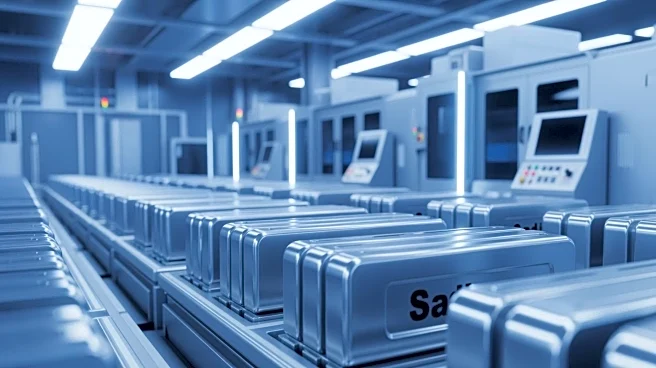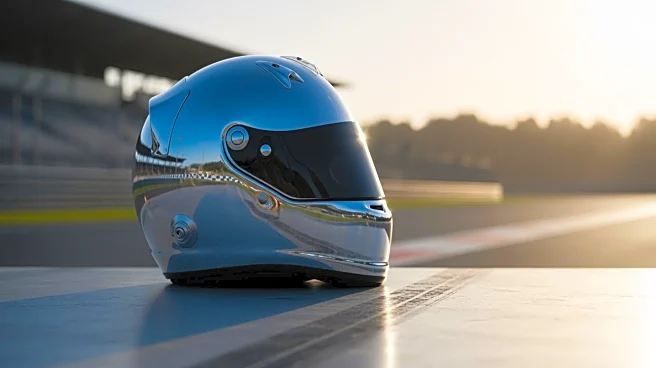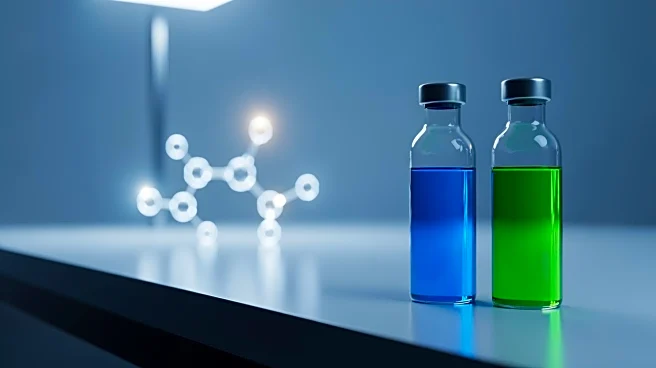What's Happening?
The development and expansion of sodium-ion battery technology are gaining momentum with significant investments from major companies like HiNa, BYD, and CATL. HiNa opened a 1 GWh sodium-ion battery factory
in December 2022, followed by BYD and CATL establishing their own large-scale factories. These companies are focusing on sodium-ion batteries due to their lower material costs and wide temperature range capabilities. Sodium-ion batteries are now being used in vehicles, such as the Sehol or E10X by JAC in partnership with Volkswagen, and in energy storage systems like BYD's MC Cube-T. The technology is seen as a viable alternative to lithium-ion batteries, particularly in applications where cost and temperature resilience are critical.
Why It's Important?
The shift towards sodium-ion batteries represents a significant development in the energy storage industry. These batteries offer a cost-effective alternative to lithium-ion batteries, which rely on more expensive and resource-constrained materials like lithium and cobalt. The lower cost and improved temperature range of sodium-ion batteries could accelerate the adoption of electric vehicles and renewable energy storage solutions. This transition could disrupt traditional energy markets and reduce reliance on fossil fuels, contributing to global efforts to combat climate change. The widespread adoption of sodium-ion technology could also lead to increased competition and innovation in the battery industry, potentially lowering costs and improving performance across various applications.
What's Next?
As sodium-ion battery technology continues to develop, it is expected to replace lithium-ion batteries in several applications, including energy storage and heavy-duty electric vehicles. Companies like CATL are already planning to use sodium-ion batteries in start-stop systems for trucks, potentially replacing lead-acid batteries. The technology's lower costs and environmental benefits could lead to broader adoption in sectors like shipping and renewable energy. Partnerships, such as CATL's with Maersk, suggest that sodium-ion batteries could soon play a significant role in maritime transport. The continued investment and innovation in this field are likely to drive further advancements and applications, potentially transforming the energy storage landscape.
Beyond the Headlines
The rise of sodium-ion batteries could have far-reaching implications beyond immediate cost and performance benefits. The technology's reliance on more abundant materials could alleviate supply chain constraints and reduce geopolitical tensions associated with lithium and cobalt mining. Additionally, the environmental impact of battery production could be mitigated, as sodium-ion batteries do not require resource-intensive materials. This shift could also influence global energy policies, encouraging countries to invest in sustainable energy solutions and infrastructure. As the technology matures, it may pave the way for further innovations in battery chemistry, such as lithium-sulfur and solid-state batteries, expanding the possibilities for energy storage and electrification.









